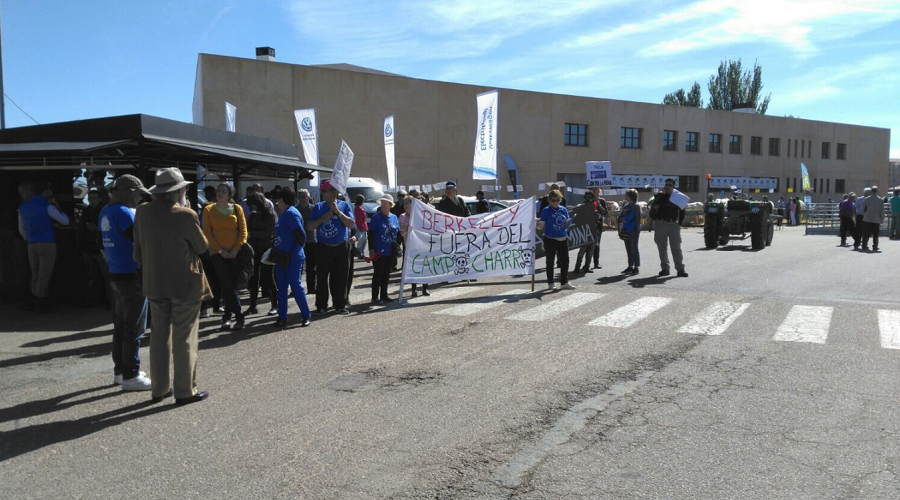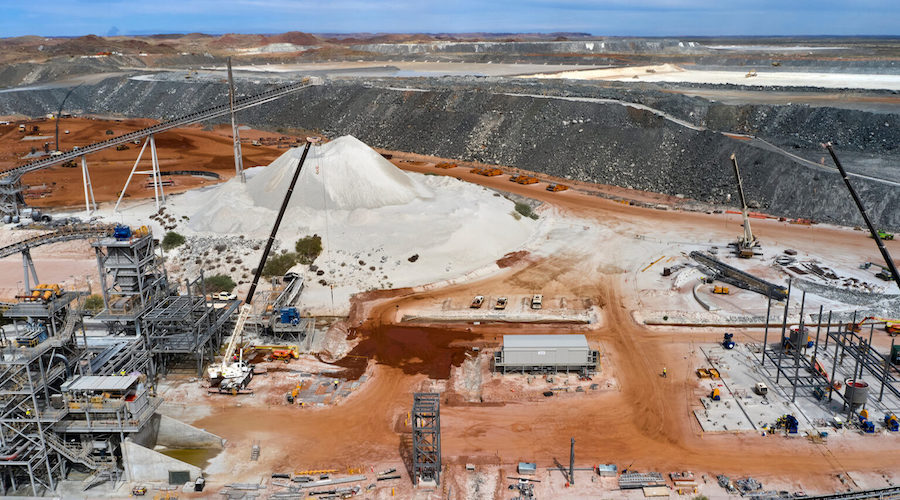More opposition to Berkeley’s uranium mine in Spain

Nuclear energy experts from a variety of countries expressed their support this week to the actions carried out by Stop Uranio, a social platform that opposes Berkeley Minera España’s plans to open a mine in the Spanish town of Retortillo.
Greenpeace anti-nuclear campaigner, Raquel Montón, said that Spain doesn’t need nuclear plants or mines because the country is on a promising path towards developing sustainable sources of clean energy.
According to EFE news agency, Greenpeace and other organizations such as WWF, worry about the impacts nuclear debris might have on both the environment and the local population.
Nuclear physicist and spokesperson for Ecologistas en Acción, Francisco Castejón, added to the debate by saying that Berkeley’s mine poses unnecessary risks to the people of Retortillo. “They are destroying the environment and buying politicians to be able to build their mine,” he told EFE (in Spanish). “Allowing this project to go forward would jeopardize the future of this community.”
Source: Berkeley Resources.
Castejón, together with José Ramón Berrueco from Stop Uranio, says that the company has been clear-cutting oaks in order to build its facilities and the effects of such action are already visible in the farming town.
Interviewed about this topic, French nuclear engineer Bruno Chareyron, who is the director of the CRIIRAD lab, said that neither workers nor the local population are well aware of the implications of mining uranium.
In general, Chareyron said, companies do not offer appropriate solutions to protect people from the dangers of handling any kind of radioactive material extracted from uranium mines.
The Retortillo-Santidad uranium deposit is part of Berkeley’s flagship Salamanca uranium project and it is expected to produce an average of 4.4 million pounds of uranium per year.
The Australian company’s mining license for the site is valid for an initial period of 30 years, renewable for two further periods of 30 years.
{{ commodity.name }}
{{ post.title }}
{{ post.date }}




4 Comments
Paul Atherley
Disappointing that Ms Leotaud chose to publish this old story of a poorly attended demonstration and the same old anti nuclear statements from the usual suspects rather than checking with the Company about the situation on the ground.
Had she done so she would have seen the coverage in the local media (La Gazetta) et al of very much larger demonstrations by 50-60 of the local villagers (rather than “outsiders”) calling “abast ya” and telling the greens to stop their harassment.
The villagers want the mine.
Almost 25% of the local population have either attended training courses or apllied for a job at the mine. Next year we will have close to 450 people employed in a region has some of the highest levels of unemployment in the EU and which last year saw an exodus of 25,000 people leaving their homes to look for work elsewhere.
Perhaps Ms Leotaud could in future take up our longstanding offer of communicating with the Company before she uncritically recycles these outdated briefings from opposition groups.
Paul Atherley
Managing Director
Rob George
Totally agree with Paul Atherley’s post. It’s hard to call this deliberately biased and one-sided piece anything other than dishonest propaganda. Disappointing journalism indeed. (And I write this as a “greenie”!)
U308
Is this a mining.com article or a greenpeace press release?
oleo
Sorry for my poor english, in spanish or french it should be easier…
Here they are just relating the facts, there is no propaganda.
This old story is about one month, a meeting in Paris. Easy to verify…
La Gaceta don’t write about the greenies, just about the people in your favour, they choose the money for pub against a journalistic job.
I’m sorry Mr Atherley but i’m not agree with your methods, i understand that you have a business to do manipulating the facts but its goods for us to have all opinions. Your opinion and the other opinion….
May you can explain your latest anounce to build a park for children in Villavieja de Yeltes before the last year, the same day of a demonstration with 1000 people in Salamanca, knowing that the mayor of these village is the person that is in charge of infrastructures of the village and that he never acccepts.
Who is making propaganda or tried to divide a village…
I wish you many success but not in the miming….
JOsé